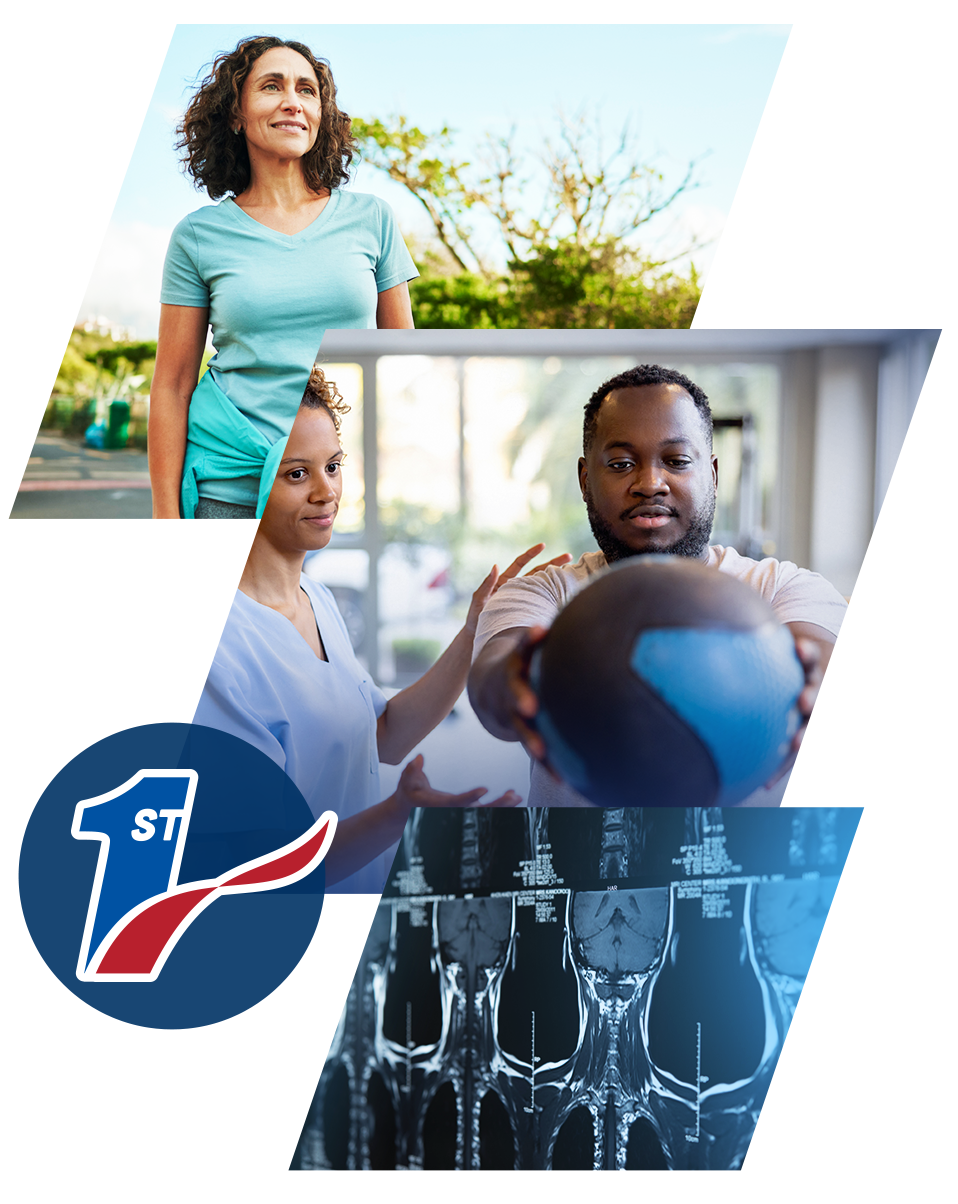Medical Examinations
Road to a Pain Free Life With No Upfront Costs to You
Comprehensive Medical Examinations in Oregon and New Mexico
Medical exams after an auto accident are crucial. At 1st Health Inc., we conduct thorough evaluations to pinpoint any hidden injuries you may have sustained. This detailed assessment helps us understand the full extent of the damage to your body so we can create a personalized treatment plan to get you back on track.
Are you worried about paying for our services? As the nation’s largest attorney referral network, we can connect you with an experienced attorney who can use the results of your examination to build a case for compensation for losses related to your injuries. They can guide you through the complicated claims process, championing your rights every step of the way.
Understanding the Importance of Medical Examinations After an Accident
A medical examination is appropriate immediately following an auto accident, regardless of whether you feel pain or have visible injuries. Many injuries, such as whiplash or soft tissue damage, can initially present with little to no symptoms. Early detection through a professional medical examination ensures that these hidden injuries are identified and treated before they can worsen.
It’s also critical to undergo a medical examination if you experience any delayed onset of symptoms. Even mild discomfort, dizziness, or fatigue, which may arise days or weeks post-accident, can be indicative of more serious underlying problems. Prompt evaluation and documentation of these symptoms are crucial for your health and for substantiating any legal claims.
At 1st Health Inc., we stress the importance of immediate and thorough medical assessments to ensure your health and legal needs are effectively addressed. Don’t wait for symptoms to appear or worsen—schedule your medical examination today and take control of your recovery and rights.
Together, let's take the first step toward your recovery and rightful compensation. Call to schedule a medical examination today.



What Is Involved in a Medical Examination?
Initially, a detailed history of the accident is taken, including the circumstances of the collision and any immediate symptoms you experienced. After that, we perform a full physical examination, during which our healthcare professionals assess your vital signs, check for visible injuries, and evaluate pain points or mobility issues.
Advanced diagnostic tools may be employed to ensure no detail is overlooked. Imaging tests like X-rays, MRIs, or CT scans can reveal internal injuries that are not immediately visible but could have long-term implications. These tests are particularly important for identifying issues like fractures, soft tissue injuries, or potential spinal damage.
Thorough documentation of your injuries is crucial for both medical treatment and the insurance claims process. It provides a baseline for your recovery and a detailed record that can be used to substantiate your claims with an attorney. Our integrative approach not only prioritizes immediate health concerns but also provides the medical evidence necessary to support your pursuit of rightful compensation.
Your Search For the Right Medical Team Ends Here
Injuries Commonly Found During Medical Examinations
Auto accidents often result in a wide range of injuries, varying from minor to severe, depending on the nature and force of the collision.
Whiplash
Concussions
Fractures and Broken Bones:
Spinal Injuries
Spinal cord damage can cause chronic pain, limited mobility, and paralysis. Initial treatment is crucial to reduce long-term effects.
Soft Tissue Injuries
Internal Injuries
These can be life-threatening and hard to detect, including organ damage and internal bleeding. Imaging tests like CT scans or MRIs are essential.
Bruises and Lacerations
1st Health Inc.: Evidence for Auto Accident Compensation
The road to recovery after an auto accident can be complex. Our medical examinations are designed to provide clarity and direction during this challenging time. By thoroughly assessing your injuries and documenting them in detail, we empower you to make informed decisions about your health and legal options.
We believe that everyone deserves access to quality healthcare and justice. If you or someone you know has been injured in an auto accident, don’t hesitate to reach out to us. Our team of experienced professionals is here to guide you through the recovery process and ensure that your rights are protected.
Frequently Asked Questions
What should I bring to my chiropractic examination?
Will a chiropractic examination hurt?
Will chiropractic care interfere with my other medical treatments?
Can I combine chiropractic care with other forms of therapy?
Can chiropractic care help with conditions other than back pain?
We offer same-day appointments. Call or contact us online to schedule a medical examination today.

